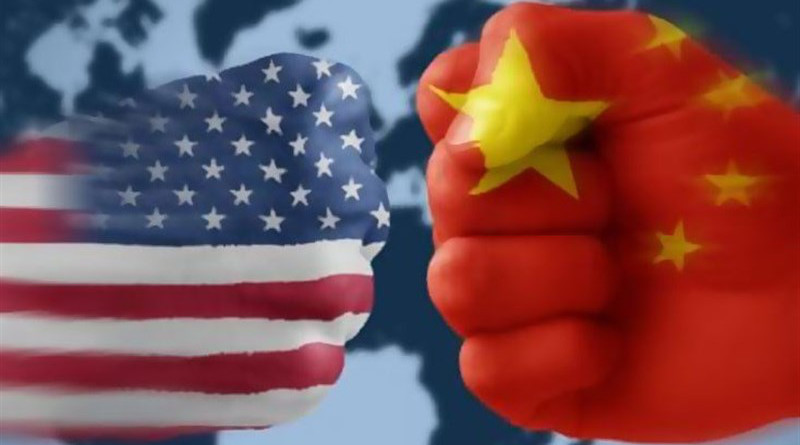There Is No Winner In This Trade War – OpEd
While the US had already been reversing course on trade liberalization for a decade prior, the election of Donald Trump brought with it a programmatic protectionist approach. As President, Joe Biden has largely followed Trump’s lead, with polls showing broad support among respondents of both parties for “Buy American” initiatives and other protectionist measures. Even though the massive disruption to the global economy precipitated by the response to covid makes saying anything too definite difficult, enough data is available to pass an educated judgment as to whether or not these policies should be continued.
The answer: no.
First, the US is losing its trade war of choice with China. Under Trump, the US ran a larger balance-of-trade deficit with China than in either of Barack Obama’s and George W. Bush’s two terms. Supporters of Trump’s, and now Biden’s, chosen policies might object that by the time Trump left office the deficit was smaller than the one he had inherited. Appearances can be deceptive, however, for, in the words of Mark Twain, there are three kinds of lies: “Lies, damned lies, and statistics.”
So what are the numbers hiding?
Frankly, a lot of cheating. Nothing illegal, strictly speaking, but as might be expected, creative ways have been found to circumvent attempts at preventing Chinese imports. As the Economist reports, these means of avoidance—such as exploiting the “de minimis” rule, dividing imports into smaller shipments not subject to import duties—mean the current trade deficit is likely underestimated by almost 20 percent.
As these goods are still coming into the country anyway, it makes particular sense in an era of already congested supply chains and high inflation to shelve the inefficacious policy, for even though voters do express general levels of approval for protectionist policies when polled, they dislike rising prices even more, and they generally do not make the connection between the two. However secondary the impact of these measures, and however difficult it is to calculate their import, there is no doubt these measures have contributed to worsening inflation and congesting already congested supply chains with needless time and resource wasting devoted to evasion.
On that note, rising US prices are hardly likely to stimulate Chinese interest in fulfilling their now tardy obligation to buy an additional $200 billion in US products as part of the Phase One trade deal signed by Trump and Xi Jinping. So far the Chinese have purchased exactly none.
Furthermore, the weaponization of trade by the Trump and Biden administrations has hastened China’s efforts to insulate its economy from potential US-induced disruptions. The securing of separate and independent supply chains for their critical materials has been a dangerous development.
While global trade just prior to World War I was the highest in total terms it had ever been—indeed, it would not recover those levels for more than half a century—much of that trade occurred within basically mercantilist imperial blocs. The reason for fighting wars was, in most cases, the literal capturing of foreign markets. By contrast, a truly all-encompassing system of world trade, such as has been experienced to varying degrees since the end of the Cold War, is an anomaly of the period since global integration began in the late fifteenth century. While even the advent of nuclear weapons was not enough to preclude war, trade interdependence should not be written off as irrelevant to attempts at obtaining a peaceful world.
Protectionism, of course, cuts directly against this.
For all that, President Biden’s recent State of the Union was filled with promises to buy American! This while he called for a reduction in consumer prices! No observant student of ECON 101 could have failed to miss the irony: protectionist measures increase the prices all consumers and businesses pay. The difference between that higher price and the one consumers and businesses would pay under normal market conditions is pocketed by the favored industry. Protectionism, whatever its form—be it import quotas, tariffs, domestic content requirements, or subsidies—is simply a mechanism whereby part of the consumer surplus is transferred to the producer.
Who wins and how much is largely decided out of sight: increasing the debt, eroding the public confidence, raising prices, and burdening the economy with interventions—all of it done, of course, in the name of the public good.
Added to this, now, are the sanctions on Russia that the US and its largely European allies have put in place. As Putin’s eventual successful ouster of the Kyiv government will make these sanctions all but unliftable, the lines dividing the emerging trading blocs of the twenty-first century will harden further.
Make no mistake: all of us will lose.
*About the author: A graduate of Spring Arbor University and the University of Illinois, Joseph Solis-Mullen is a political scientist and graduate student in the economics department at the University of Missouri. A writer and blogger, his work can be found at the Ludwig Von Mises Institute, Eurasian Review, Libertarian Institute, and Sage Advance. You can contact him through his website http://www.jsmwritings.com or find him on Twitter.
Source: This article was published by the MISES Institute

